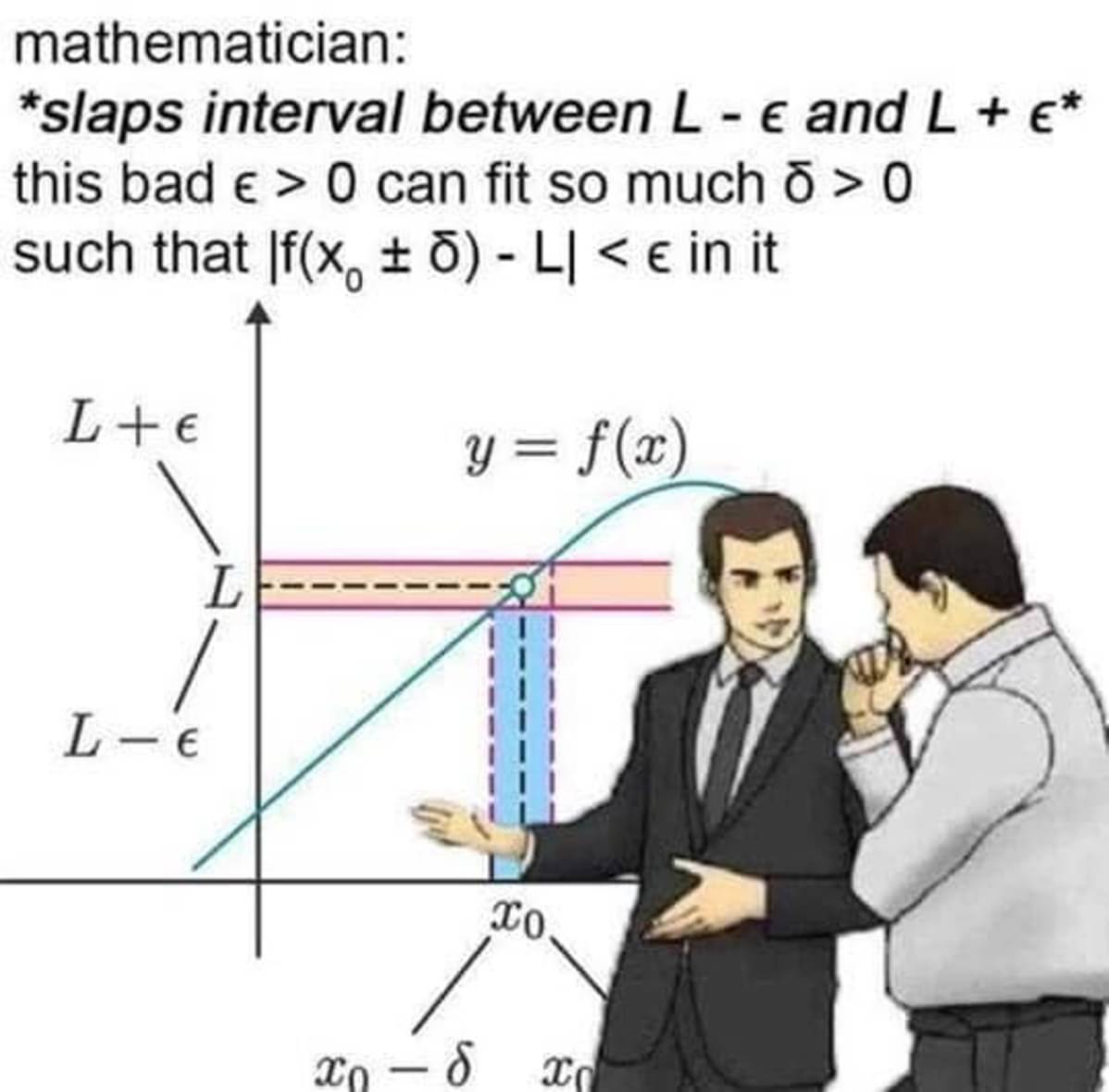this post was submitted on 07 Sep 2024
334 points (98.5% liked)
Science Memes
10923 readers
2264 users here now
Welcome to c/science_memes @ Mander.xyz!
A place for majestic STEMLORD peacocking, as well as memes about the realities of working in a lab.

Rules
- Don't throw mud. Behave like an intellectual and remember the human.
- Keep it rooted (on topic).
- No spam.
- Infographics welcome, get schooled.
This is a science community. We use the Dawkins definition of meme.
Research Committee
Other Mander Communities
Science and Research
Biology and Life Sciences
- [email protected]
- [email protected]
- [email protected]
- [email protected]
- [email protected]
- [email protected]
- [email protected]
- [email protected]
- [email protected]
- [email protected]
- [email protected]
- [email protected]
- [email protected]
- [email protected]
- [email protected]
- [email protected]
- [email protected]
- [email protected]
- [email protected]
- [email protected]
- [email protected]
- [email protected]
- [email protected]
- [email protected]
- !reptiles and [email protected]
Physical Sciences
- [email protected]
- [email protected]
- [email protected]
- [email protected]
- [email protected]
- [email protected]
- [email protected]
- [email protected]
- [email protected]
Humanities and Social Sciences
Practical and Applied Sciences
- !exercise-and [email protected]
- [email protected]
- !self [email protected]
- [email protected]
- [email protected]
- [email protected]
Memes
Miscellaneous
founded 2 years ago
MODERATORS
you are viewing a single comment's thread
view the rest of the comments
view the rest of the comments

i still feel like this whole ε-δ thing could have been avoided if we had just put more effort into the “infinitesimals” approach, which is a bit more intuitive anyways.
but on the other hand, you need a lot of heavy tools to make infinitesimals work in a rigorous setting, and shortcuts can be nice sometimes
Infinitesimal approach is often more convoluted when you perform various operations, like exponentials.
Instead, epsilon-delta can be encapsulated as a ball business, then later to inverse image check for topology.
i think the ε-δ approach leads to way more cumbersome and long proofs, and it leads to a good amount of separation between the “idea being proved” and the proof itself.
it’s especially rough when you’re chasing around multiple “limit variables” that depend on different things. i still have flashbacks to my second measure theory course where we would spend an entire two hour lecture on one theorem, chasing around ε and η throughout different parts of the proof.
best to nip it in the bud id say